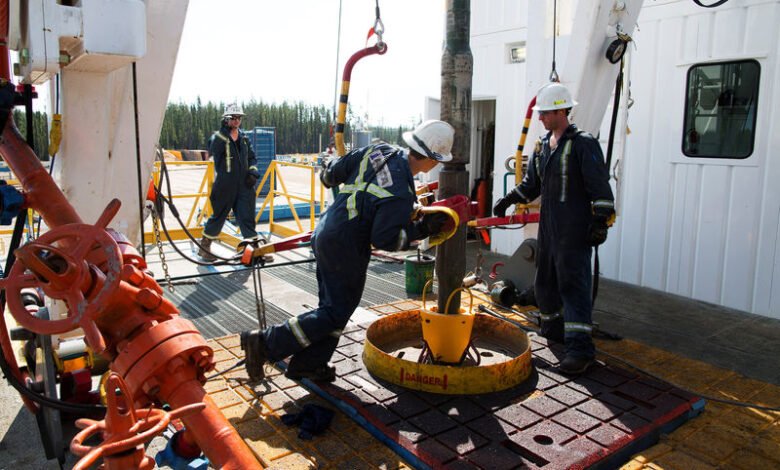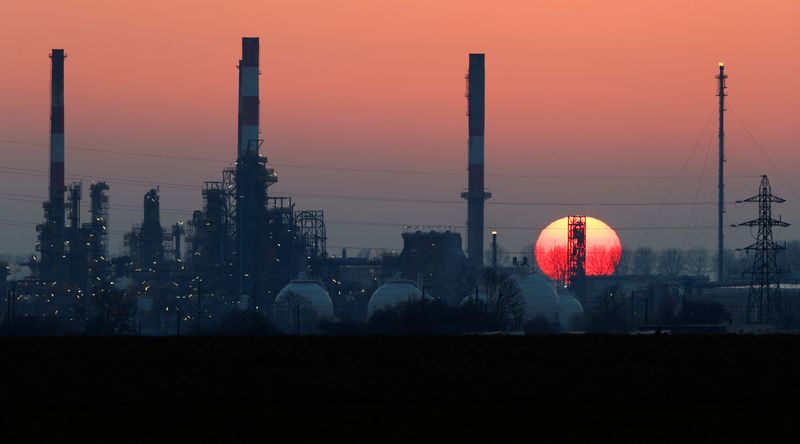

© Reuters. The sun sets behind the chimneys of the Total Grandpuits oil refinery, southeast of Paris, France, March 1, 2021. REUTERS/Christian Hartmann
By Natalie Grover
LONDON (Reuters) – Oil prices fell on Wednesday, pressured by lacklustre economic activity in leading crude importer China, but a first monthly gain since September remained in sight as flaring tensions in the Middle East heightened supply concerns.
futures for March, which expire today, fell 90 cents, or about 1.1%, to $81.97 a barrel by 1530 GMT. The more actively traded April contract was down $1.17, or about 1.2%, at $81.33.
U.S. West Texas Intermediate crude futures lost $1.33, or roughly 1.7%, to $76.49.
Manufacturing activity in China, the world’s second-largest economy, contracted a fourth straight month in January, an official factory survey showed on Wednesday.
The latest sign of the country’s broader economy struggling to regain momentum came days after a court ordered the liquidation of troubled property developer China Evergrande (HK:). The real estate sector accounts for a quarter of China’s GDP.
Major forecasters, including the Organization of the Petroleum Exporting Countries (OPEC), see oil demand growth in 2024 driven primarily by Chinese consumption.
“The factory data confirms our view that China, at least for now, is an impediment to global oil demand growth,” said Tamas Varga of oil broker PVM.
In other demand-dampening news, U.S. policymakers are expected to keep interest rates unchanged this week. Economist predictions suggest that a cut is unlikely before June, given continuing strength in household spending and uncertainty over the economic outlook.
The Israel-Hamas war, meanwhile, has expanded to a naval conflict in the Red Sea between the United States and Iran-aligned Houthi militants.
While that has disrupted oil and tanker shipping, which is driving up delivery costs and starting to affect oil supplies, a Reuters poll suggested that record production in the West and slow economic growth will keep a lid on prices and limit any geopolitical risk premium.
“The main issue with turning outright bullish on here is the technical picture remains bearish and is yet to catch up with recent events,” including a deadly drone attack on U.S. troops near the Jordan-Syria border last week, said IG market analyst Tony Sycamore.
Yemen’s Iran-aligned Houthi group on Wednesday said it would keep up attacks on U.S. and British warships in the Red Sea in what it called acts of self defence, stoking fears of long-term disruption to global trade.
Meanwhile, Israel’s offensive in Gaza persisted, though Palestinian militant group Hamas said it was studying a new proposal for a ceasefire and release of hostages in Gaza.
Source link




